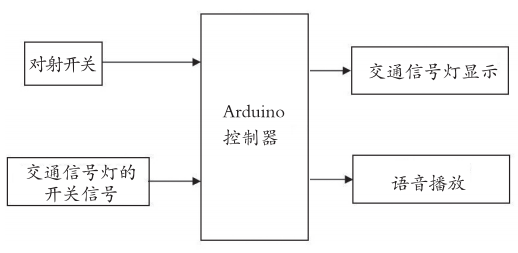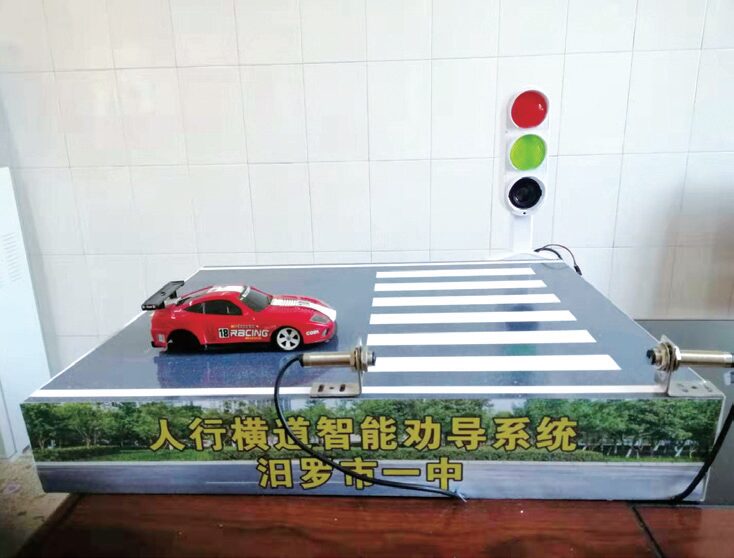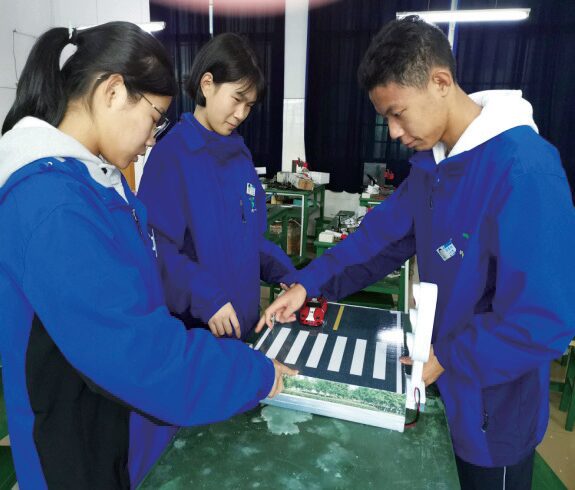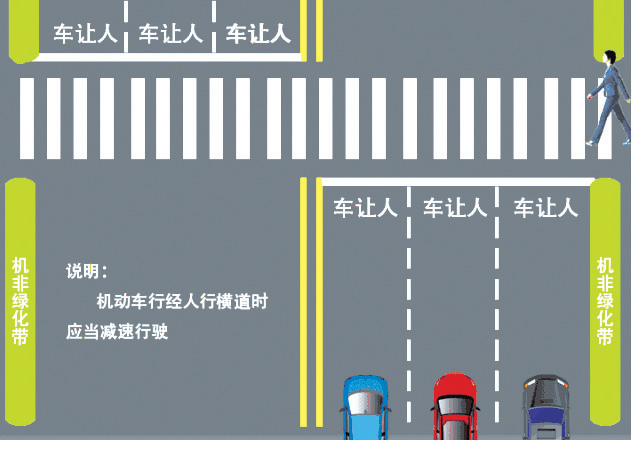
Smart Pedestrian Crossing Guidance System
First High School of Miluo City, Hunan Province | School
Lu Jia, Liu Wenbo, Yang Yiyi | Authors
The pedestrian crossing is the lifeline of urban roads, but it is difficult for drivers to see the crossing at night or in rainy and snowy weather.
Moreover, some drivers have not formed a safety awareness of stopping to yield to pedestrians, coupled with the prevalence of “phubbing” pedestrians who are distracted by their phones, greatly increasing the safety risks when crossing the road.
Miluo City has implemented a system where city leaders and department units are responsible for specific road sections, advocating that public officials conduct civilized guidance for more than one hour each day. To discourage pedestrians from crossing against the red light, various units send public officials to patrol the streets one hour before and after work. This effort consumes a lot of human, material, and financial resources; therefore, we aim to design a “Smart Pedestrian Crossing Guidance System.”
Sample the time intervals for the pedestrian crossing traffic light’s timing, design the circuit, and develop the traffic light loop control program to simulate the real-time application scenario of the pedestrian crossing traffic light.
If someone attempts to cross the pedestrian crossing while the red light is on, the laser switch at the crossing will be obstructed, sending a low-level signal to the Arduino controller, triggering the interrupt handling program. The interrupt program sends instructions to the sound playback chip via the serial port to play a pre-recorded audio file, with sound and light warnings simultaneously. When the green light is on, the switch at the pedestrian crossing does not function.
The digital I/O of the Arduino controller is divided into two parts, each containing 6 available I/O pins, namely pins 2 to 7 and pins 8 to 13. Except for a 1K resistor connected to pin 13, the other pins are directly connected to the controller.

Figure 1 Overall Structure Diagram

Figure 2 Model Production

Figure 3 Work Model

Figure 4 Model Debugging
The program sends instructions to the sound playback chip via the serial port to play a pre-recorded audio file, with sound and light warnings simultaneously. When the green light is on, the switch at the pedestrian crossing does not function.
The digital I/O of the Arduino controller is divided into two parts, each containing 6 available I/O pins, namely pins 2 to 7 and pins 8 to 13. Except for a 1K resistor connected to pin 13, the other pins are directly connected to the controller.
1. A new concept for smart pedestrian crossing guidance in urban areas has been proposed, and a device has been created.
2. This device uses the Arduino open-source electronic development module to achieve smart and civilized guidance at pedestrian crossings.
3. This device integrates the existing traffic light system, resulting in low production costs.

▲ We’ve been waiting for you, quickly share your innovative story! (Click the image to read)

▲@Everyone This is an invitation letter from the annual meeting, please check (Click the image to read)







